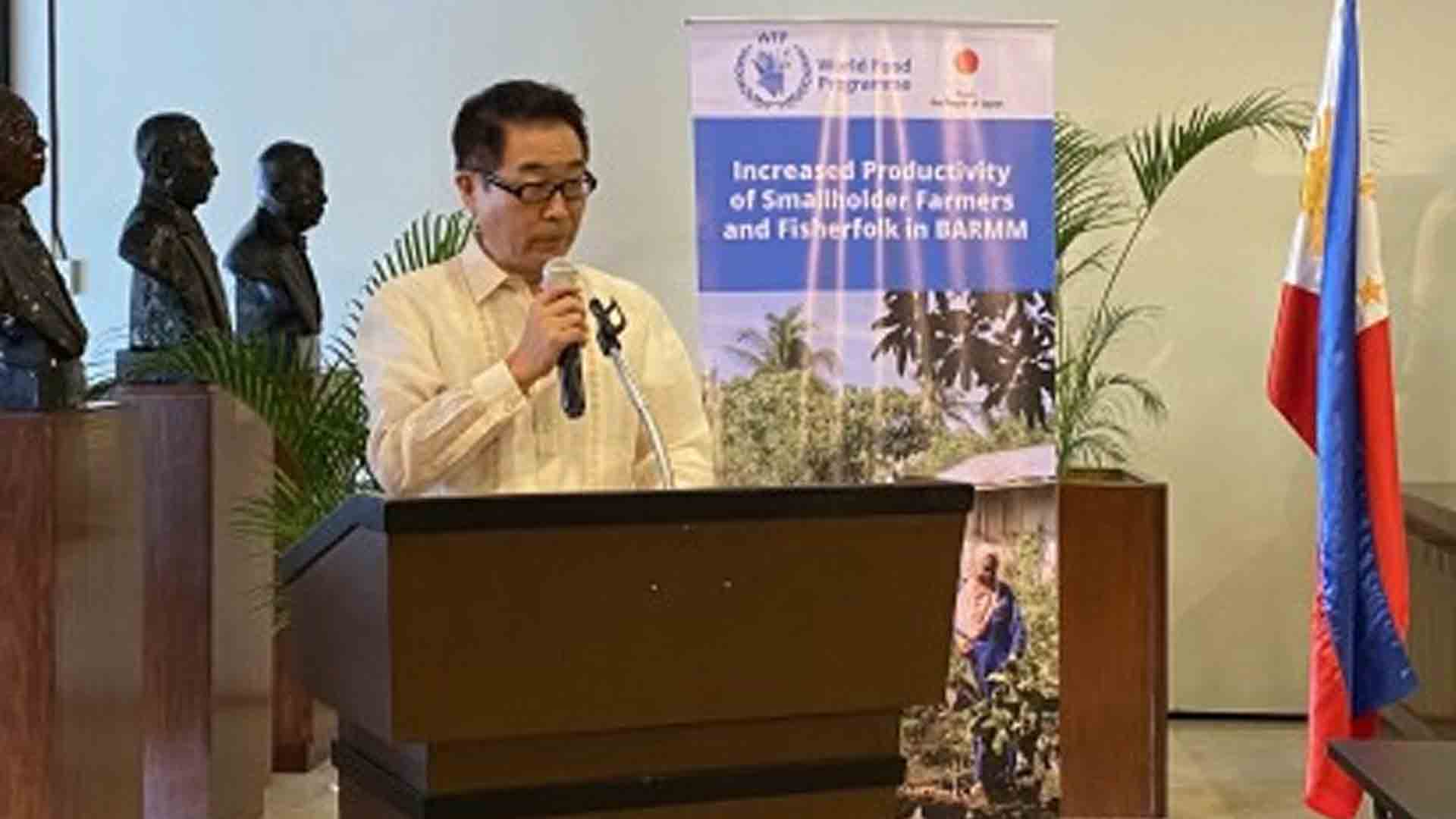The Japanese government donated USD6 million (approximately PHP337 million) to help Filipino farmers and fishermen, particularly in the Bangsamoro region, recover from the effects of Typhoon Odette that hit the Philippines in 2021.
The humanitarian aid, to be coursed through the World Food Programme (WFP) and the United Nations Food and Agriculture Organization (FAO), would benefit thousands of Filipinos in Mindanao as well as Central and Eastern Visayas.
Japanese Ambassador to the Philippines Kazuhiko Koshikawa said Wednesday the WFP project would “add greater meaning” to achieving peace and progress in the Bangsamoro region.
“It is critical to have stable living conditions, food security, and nutrition for all in order to achieve peace,” he said.
“Through such endeavors, I sincerely hope that this genuine concern from the Japanese people reaches thousands of severely affected Filipinos,” he added.
Of the funding, USD4 million or PHP225 million will support a two-year WFP project to improve the livelihoods, food security and nutrition of over 7,500 smallholder farmers and fisherfolk in the Bangsamoro Autonomous Region in Muslim Mindanao (BARMM).
The program would also benefit decommissioned combatants and indigenous people and strengthen their inclusion in the agricultural value chain through improved market linkages, enhanced agricultural productivity, and social and behavior change communication activities.
They would be participating in the construction of roads, establishing storage facilities and communal irrigation systems, agro-forestry planting, and establishment of nurseries.
The WFP would also introduce Farm2Go, a platform to digitally connect farmers to markets, allowing them to sell their produce at competitive prices.
The remaining USD2 million (approximately PHP112.5 million), meanwhile, would be used by FAO to help restore livelihoods and enhance the resilience of some 20,000 small-scale coconut farmers and fishers affected by the typhoon in Central Visayas, Eastern Visayas, and the Caraga Region.
The FAO will provide farmers and fisherfolk with agricultural and fishery inputs and complement these with capacity-building on climate-resilient agriculture technologies and the use of climate information and early warning systems.
Koshikawa signed and exchanged notes for the projects with WFP Philippines Representative and Country Director Brenda Barton, and FAO Representative in the Philippines Sheila Wertz-Kanounnikoff in a ceremony at the Department of Foreign Affairs.
In a statement, Wertz-Kanounnikoff said Japan’s “generous gesture” is a testament not only to its continuing partnership with FAO but with the Philippines.
The ceremony was also attended by Minister Muhammad Yacob of the Ministry of Agriculture, Fisheries and Agrarian Reform, Philippine Coconuts Authority Deputy Administrator Roel Rosales, and Foreign Affairs Deputy Assistant Secretary Neomi Diaz. (PNA)







